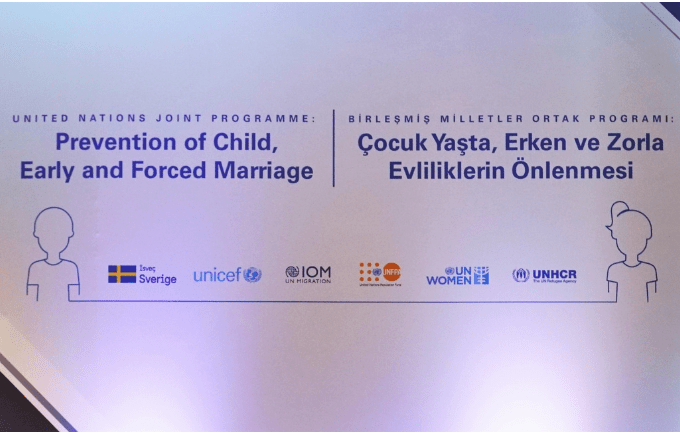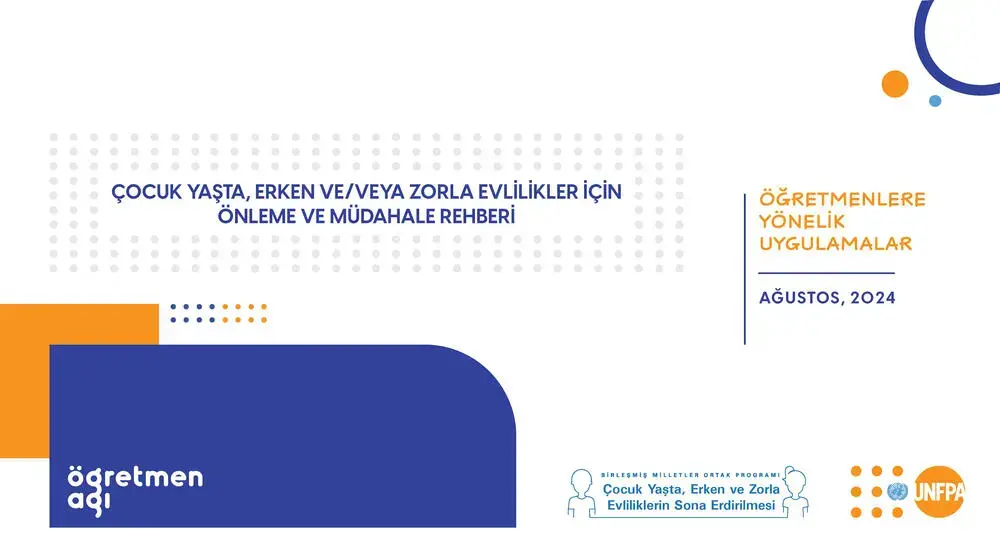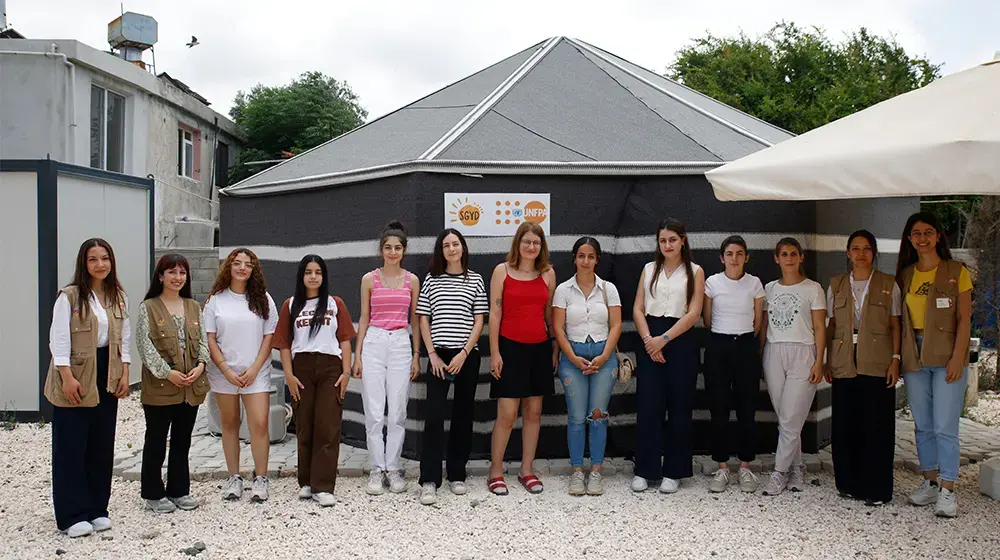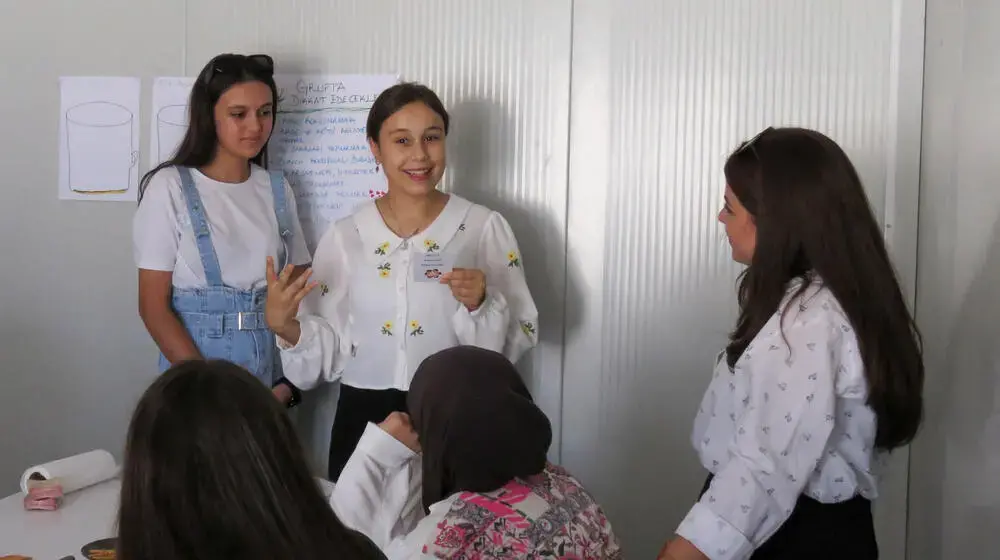Ankara, 16 May 2019 - Organized as part of the United Nations Joint Program on the Elimination of Child, Early, and Forced Marriage, an Experience and Information Exchange Meeting themed “Lessons learnt from national and local initiatives to eliminate child, early, and forced marriage” took place on May 16, 2019 in Ankara.
The program is jointly implemented by the United Nations Children Fund (UNICEF), UNFPA, United Nations Population Fund, International Organization for Migration (IOM), United Nations Entity for Gender Equality and the Empowerment of Women (UN Women), and United Nations High Commissioner for Refugees (UNHCR), with the financial support of Swedish International Development Cooperation Agency (SIDA). Launched in January 2018, the program has been implemented in the provinces of Ağrı, Ankara, Adana, Gaziantep, Hatay, İzmir, İstanbul, Kars, Kilis, Mardin, Niğde and Şanlıurfa.
In her opening speech at the meeting, Malin Stawe, Head of Pre-Accession and Humanitarian Assistance Swedish International Development Cooperation Agency (SIDA) made the following remarks: “We are happy to be a part of this program aimed at eliminating child, early and forced marriage, which is supported by Sweden. Regardless of where it takes place, child marriage infringes children's right -not only that of girls, but also the right of boys- to education, their right to a safe life and their access to the opportunities and freedoms they would need in order to build their own futures. This harmful practice also hinders the socio-economic development of the society as a whole. We believe that girls should be educated so that they can grow up to be independent and proactive members of the society, who can support their families”.
Stawe also stressed that “The Swedish Government has been supporting the United Nations Joint Program in an effort to end child, early and forced marriage through a human rights centric approach driven by gender equality, as part of a feminist foreign and development policy”. She reported that, having kicked off in early 2018 with support from the Swedish Government, the program was designed to reach out to both Turkish citizens and Syrian refugees living in the country.
United Nations Children's Fund (UNICEF), Child Protection Officer Pınar Öktem said multiple UN Agencies have partnered to implement the United Nations Joint Program in an effort to come up with sustainable solutions to the problems associated with child, early and forced marriage by addressing them through multiple aspects including migration, healthcare, children and gender equality. Underlining in her speech that individuals younger than 18 were defined as children both in national and international legislation, Ms. Öktem indicated that marriage right after turning 18 is also considered early as these individuals are far less likely to be psychologically, socially and financially ready to start a family.
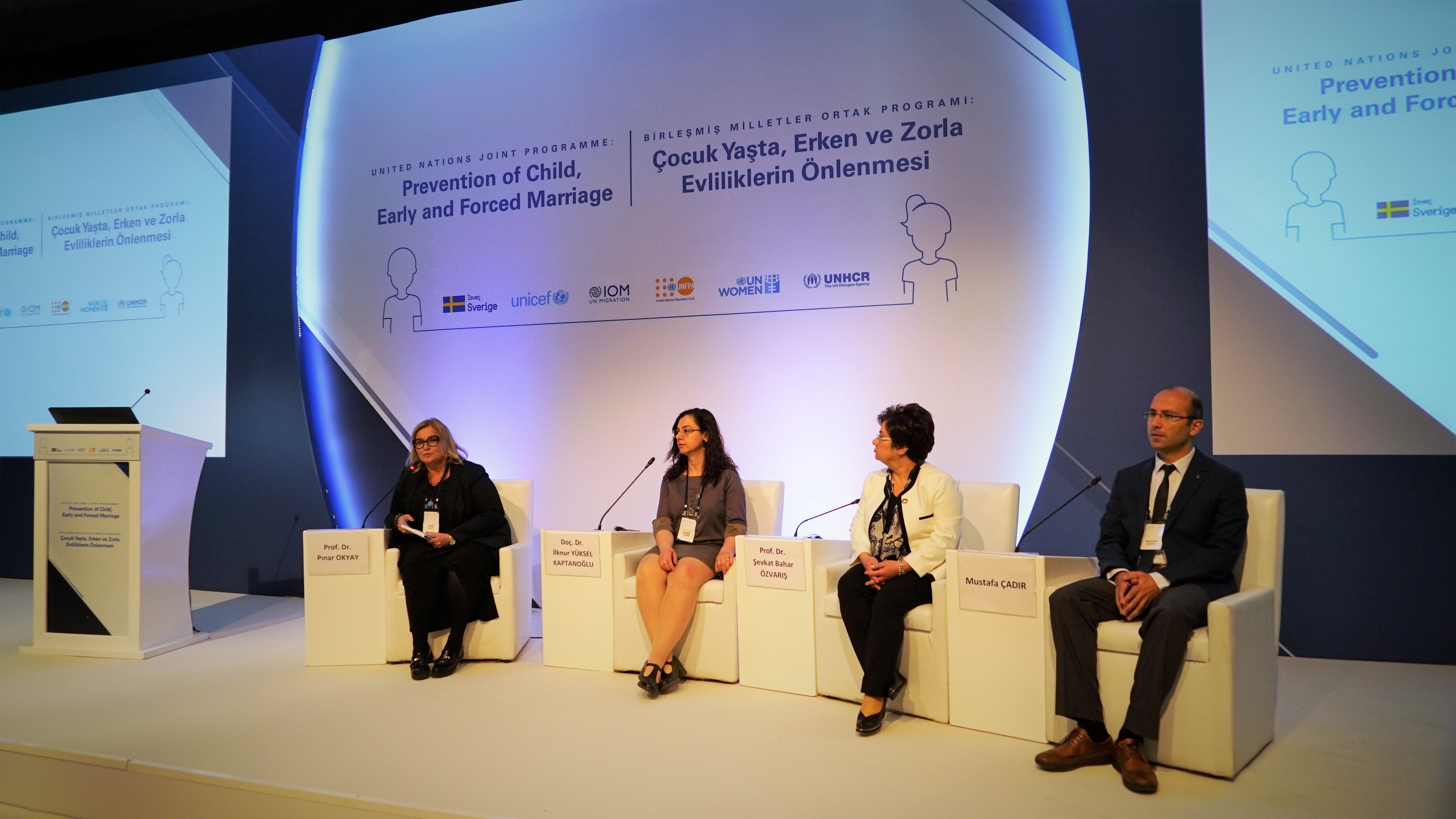
The meeting continued with a panel session. Panel Moderator Prof. Dr. Pınar Okyay, President of Community Health Specialists Association made the following remarks at the beginning of the panel session: “Children can't wait. We cannot postpone their needs right when they are going through a critical stage of their development. We have to look after our children today so that they grow up to be the healthy, happy and productive adults of the future" and invited panelists to deliver their speeches.
As part of the presentation titled “Child, early and forced marriage as a form of violence against women and girls” she gave during the panel session, Assoc. Prof. Dr. İlknur Yüksel Kaptanoğlu from the Association for Monitoring Gender Equality (CEID) and Hacettepe University Institute of Population Studies reported that 21% of women worldwide got married before they turned 18. She went on to say that, these data suggested that around 650 million women around the world got married before the age of 18, and she explained that the rate of underage marriage was 15% in Turkey. She added that, on top of social, cultural and faith-rated factors, economic ones were also involved in the prevalence of this practice.
Prof. Dr. Şevkat Bahar Özbarış, Head of Women's Research and Implementation Center (HUKSAM) at Hacettepe University, delivered a presentation about the adverse effects of child marriage on human health. Based on the experience HUKSAM has obtained in this area through 3 Women's Health Consultation Centers operated with the technical assistance from the United Nations Population Fund and financial support of the European Civil Protection and Humanitarian Aid Operations (ECHO), she dwelled on the health-related outcomes of child marriage.
Mustafa Çadır, Head of Women's Policies at the Ministry of Family, Labor and Social Services briefed the participants about the progress achieved from the efforts undertaken to address child marriage. During his presentation, Mr. Çadır said: “According to the data from the Turkish statistical Institution, whereas it was 8.1 in 2003, early marriage rate in Turkey dropped to 3.8 in 2018. Although we have achieved a considerable decline in this rate, we are well aware that there is still so much to do. Relevant publications drawn up the Ministry include references to early and forced marriage. It is clear that the awareness-raising efforts we have undertaken have contributed to the decrease in early marriage rates”. In addition, Mr. Çadır reported that they had delivered awareness-raising training at 187 coffee shops, in 47 villages, to 1886 civil servants, 121 owners of barbershops and wedding halls, 141 Provincial Directors of the Ministry of Family, Labor and Social Services and 154 Syrian individuals.
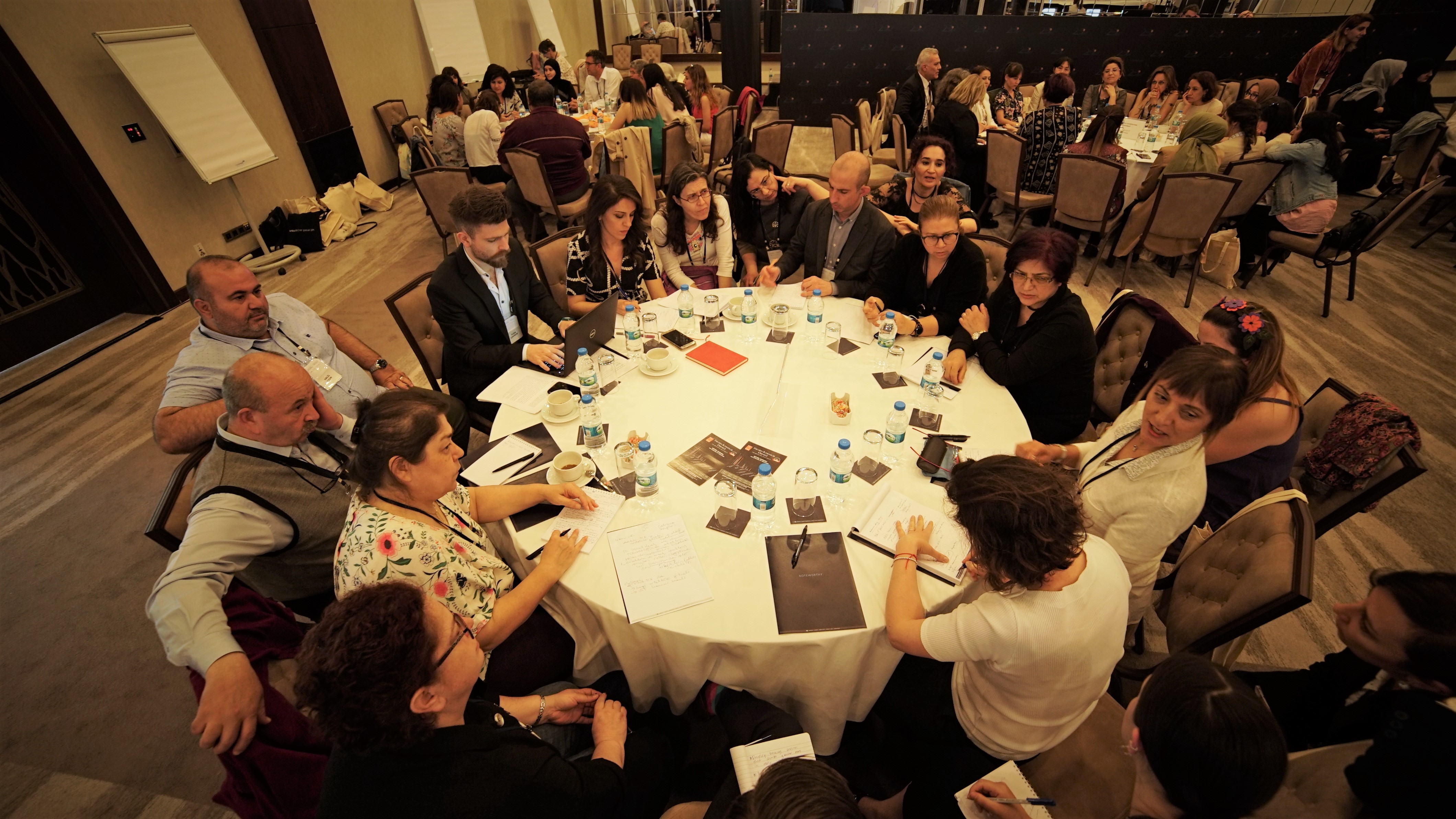
The meeting proceeded with a forum for exchanging ideas and experiences by the staff from the provinces on how to further disseminate the joint program. During the sessions facilitated by Dr. Gökhan Yıldırımkaya, Reproductive Health Coordinator at UNFPA, 6 working groups supported by moderators discussed the following subjects: National and local policies, Services available to the affected population, Innovative ways to get the communities involved in changing social norms, Empowering women and girls, role of men and boys, and the Interlink between human-trafficking and child, early and forced marriage. Outputs from the group works and conclusions drawn from the discussions were shared at the end of the meeting.
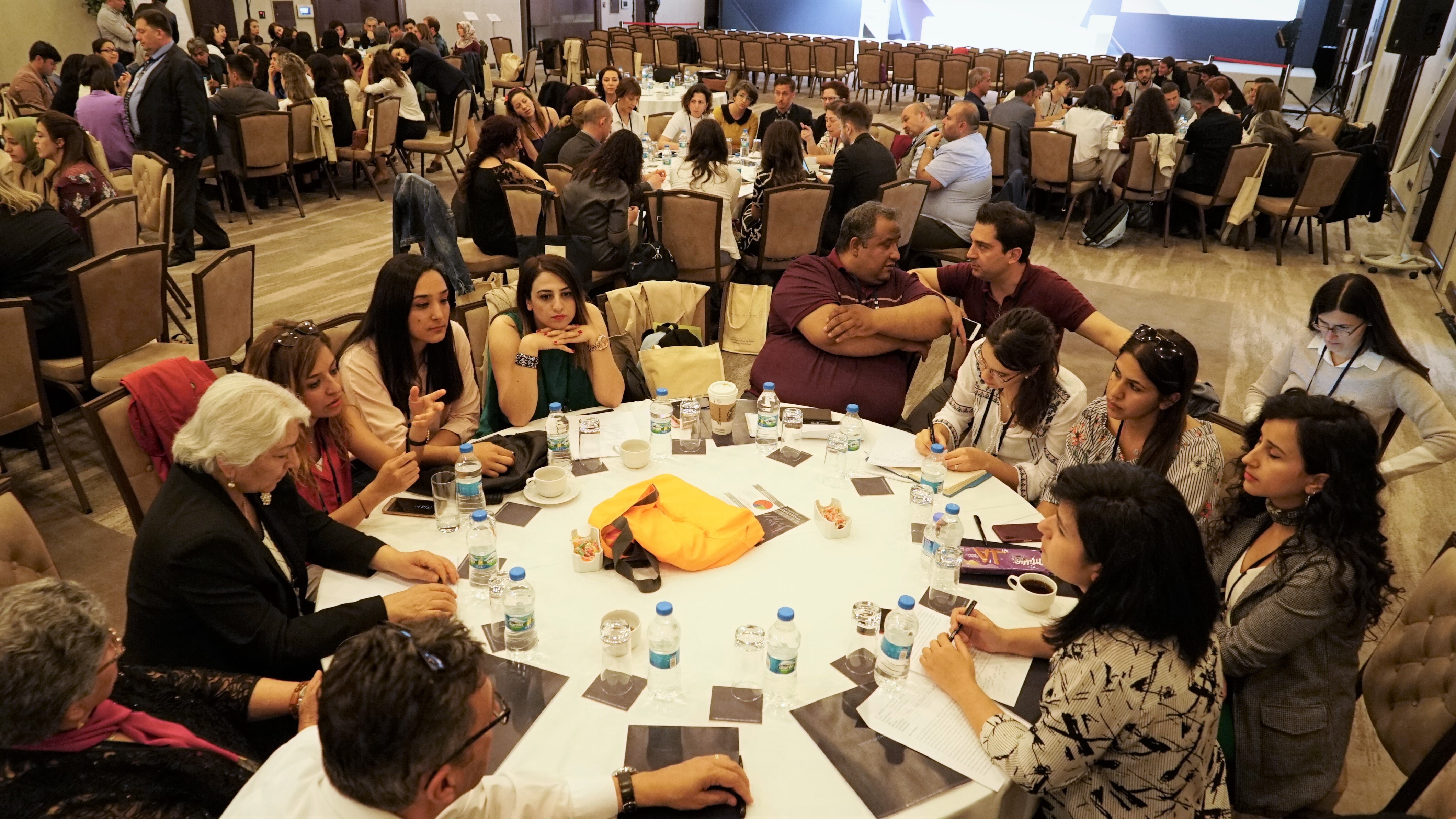
As he summarized the group work results, Dr. Gökhan Yıldırımkaya underlined the importance of ensuring that monitoring and assessment of multi-sector cooperation and action plans are performed periodically and effectively, and their results are shared with all stakeholders.
Emine Kuzutürk Savaş, Manager of the UNFPA Project on Eliminating Child, Early and Forced Marriage indicated that the results and recommendations from the workshop would be complied and shared with the participants and relevant organizations. Explaining that the program's fieldwork would feed on the data from this meeting, Ms. Kuzutürk Savaş closed the meeting by thanking all participants and program partners for their contribution.


